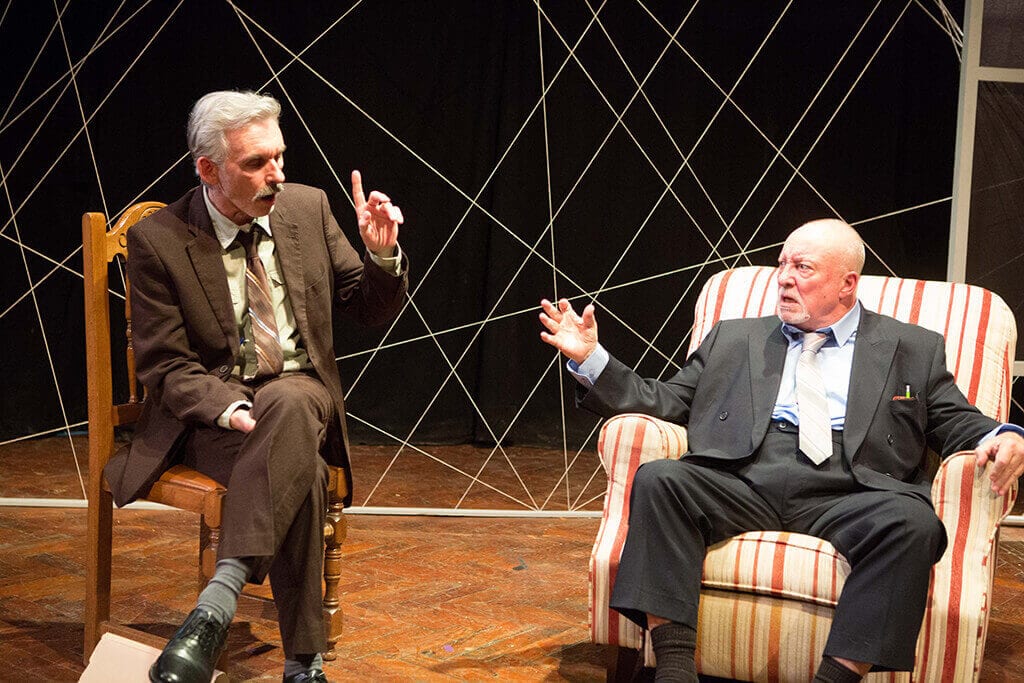The stratospheric success of plays like Death of a Salesman and The Crucible have made Arthur Miller a household name. Danger, Memory! is a collation of two later plays (I Can’t Remember Anything and Clara) that unfortunately fails to pack a punch like his earlier works.
In Danger: Memory! Miller’s familiar themes are unconvincingly coaxed onto the stage. The two plays inorganically meander through dialogue, united by the theme of amnesia, which is made glaringly obvious. The error lies in composition: the characters feel artificial, jammed into their respective roles to fit the idea of the play, rather than spontaneously created.
The humour of I Can’t Remember Anything is problematic. Leo (Julian Bird) and Leonora (Deborah Javor) make wisecracks and casual jabs at each other, indicative of an American sitcom, but this kind of humour is self-serving and tangential. The scripting behind the jokes is achingly apparent, making it feel like Miller deviates from a cohesive narrative just to include a titbit of comedy.
The tight focus on the two characters fails because of the flaccid writing. Leo is a semi-retired mathematician with an empirical left-wing mind. Leonora is an alcoholic New England widow suffering from a vague existential crisis. Leo and Leonora bounce off each other: Leo occasionally causes Leonora distress with his condescending attitude, but then reels her back in with nuggets of nostalgia. This fond invoking of the “old days” (memories of Leonora’s dead husband, parties and drunken escapades) results in a sort of emotional yo-yoing: Leonora oscillates between bitterness and merriment. This is drawn out mechanically to the end without any discernible character development.
After a brief interval the stage is reset for Clara. Albert Kroll (Julian Bird) is devastated by the recent murder of his daughter Clara (Kristy Quade). With her body still warm Detective Fine (Anthony Taylor) interrogates this doddering father with surprising belligerence. The murder is an inelegant premise for Miller to write about Kroll’s various memories. Clara’s charity work rehabilitating prisoners signals a Puerto Rican ex-convict, Luis Hernandez, whom she was romantically involved with, as the prime suspect.
Fine questions Kroll with a voracious appetite for the truth, asserting anti-liberal views (in contrast to Kroll’s), believing the world to be motivated by greed. His venomous character is taken to the point of ridiculous aggression: there is not a single iota of sympathy in the Fine’s voice. The traumatic cannonade of questions is completely unrealistic.
In a desperate sprint for a conclusion it seems that plot has evaporated: aimless rumination is preferred over actual theatre. The murder feels only half-encountered and the forays into the past are uninspiring. The whole thing feels like an excuse for Miller to pen some errant thoughts and hurl them onto the stage.

